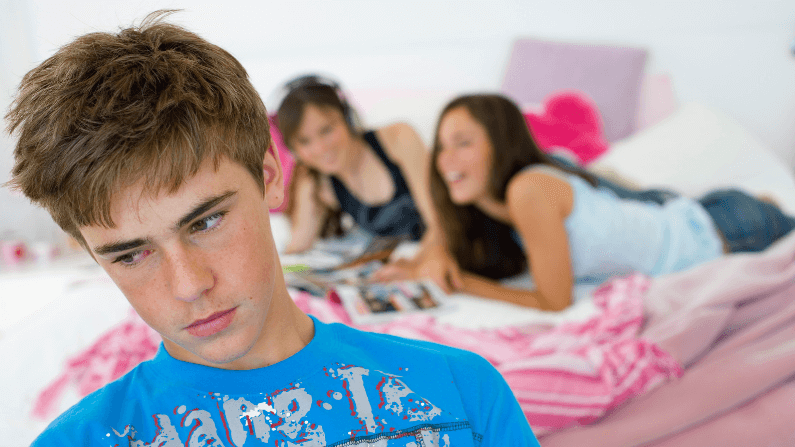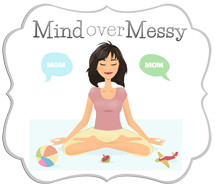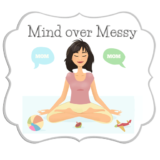“Help! My Son’s Friend Is Being Mean” – Mindful Tips for Preteens and Teenagers That Every Parent Should Know
This post may contain affiliate links. Please read our disclosure for more info.
When my 12-year old was having some challenges with one of his friends, he and I took to google to try to find information on how to handle it. We saw many parents had written, “Help! My son’s friend is being mean!” and knew we were not alone.
I didn’t love the advice I was finding. He had already tried talking to the friend to find out what the issue was – and in response heard “Nothing.” Much of the advice talked about confrontation and doing it in front of other friends saying things like, “If you’ll turn on me then you will turn on them.” It didn’t feel necessarily wrong, but it did feel like it would continue to stir the pot and it didn’t feel comfortable for my son who is not the confrontational type.
After speaking with his friend about his “mean” behavior and getting nowhere, he tried to ignore it. The problem was that this friend was doing things that were disrupting his relationship with their little group. He was saying things like “Guys. Come over here. I want to talk to you all.” And when the friends asked why my son wasn’t included he would say, “He said he didn’t want to be.” Then of course the other friends thought my son didn’t want to be around them… it was turning into a big mess.
Hence, he and I on google at night trying to figure out what to do.

Thankfully, I had the idea to reach out to a leading Mindset Coach for Youths and author of ROC & Rise, who has some outside-the-box ways to support teens (and in this case pre-teen). She is located in Australia and I’d been following her tidbits of information on her FB page and hoped she could help. What I like about Claire Eaton’s approach is that she finds ways to help the child feel empowered rather than helpless.
And in this situation my son was feeling helpless.
Not only that, it felt like the problem was growing as the other friends were getting dragged into it so that it was no longer a one-on-one issue.
Now I recognize there could be something my son did to start this whole situation, there’s always two sides to a story, but with the other kid unwilling to share what the problem was – there didn’t seem to be an easy way to resolve this.
Thankfully, Claire Eaton was open to sharing advice for my son and the Mind Over Messy community. She gave us some great tips on how to handle the situation and what do you know? It worked!
So if your child’s friend is being “mean,” here are some ideas to help them navigate it and work through it:
- He should first talk to the “mean” child and find out what is happening. There are often two sides to a story and it may be a misunderstanding. (In our case, my son had already tried talking to the boy with no luck in figuring out what had happened to cause this change in him.)
- Without an answer or insight from the other child, all he can do is set clear boundaries of how he wants to be treated.
- A mindful approach would be to now shift his thoughts and focus to all the other friends who ARE being kind, friendly and respectful.
- Let him know it’s best to give his energy and heart to all those who give him theirs.
- He should continue to be respectful, model what he wants while also protecting his own energy and mindset.
- He should avoid talking to the other friends about the “mean” friend or about the “change” because it usually backfires.
- Remind him that one person and their choices do not determine his worth.
- Tell him that over time, sometimes for reasons beyond our understanding, friendships change. That’s okay.
I let her know that he had already been asking the other friends what had happened and been asking if they were noticing it and she responded to say:
“Fair. Now he must stop talking about him in his head and to the others and just be himself… that’s all he can control right now.”
Well, my son and I had a great conversation about Claire’s tips on how to handle it and he took them to heart. It didn’t resolve overnight, but within a few days the problem seemed more manageable, and within about a week the problem seemed to be gone.
I didn’t repeatedly ask him because I didn’t want to add more fuel to the fire, but I casually asked here and there if anything had improved and was happy to hear that it was at first shifting, then it seemed manageable and now they are back to being buddies and it’s as if the whole thing never happened.
What I loved about Claire’s advice is that it didn’t escalate the problem and somehow, my son learned he could dissolve the issue by letting it go and changing HIS behavior. Which is a BIG concept for an 11-year old to grasp. That he has the power to change what he is doing in order to make an uncontrollable situation better.
But he did grasp it and returned to his happy self (thank goodness!).
Claire has a new book for teens to help them gain “Resilience, Optimism and Confidence” just as she helped my son with these tips. Check out her website HERE to learn more about her or you can order her amazing book on amazon HERE:
We’d love to hear from you. Has your child had a “mean” friend and how did he/she handle it?

P.S. It is important to note that this article was written as advice for boys, not to exclude girls, but more because I have sons and it has been surprising to me how much they “feel the feels” and struggle to handle conflict. It seems more uncommon for boys to discuss their feelings and I wanted the information out there for them so that they can know they have resources too. That being said, Claire said she would give the same advice for girls and her book will benefit ALL preteens and teens. Teaching our children to have empowering thoughts is EVERYTHING, in this writer’s opinion anyway.


